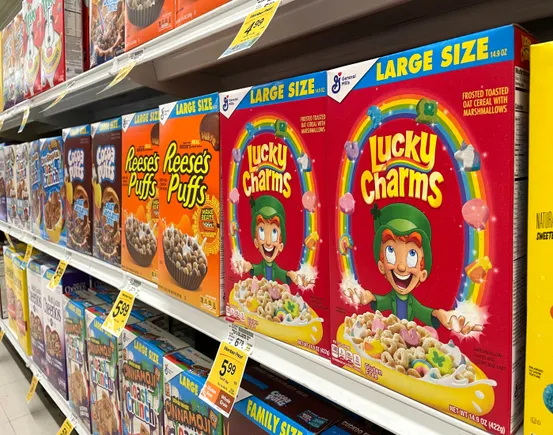Food & Beverage News: Insights, Safety, and Dining Trends
Dive Brief:
- General Mills said it will work to remove artificial colors from its U.S. retail portfolio by the end of 2027. It also committed to removing synthetic dyes from its U.S. cereals and foods served in K-12 schools by the summer of 2026.
- The Trix and Lucky Charms maker said the change will impact “only a small portion” of its school portfolio and 15% of its U.S. retail portfolio.
- General Mills’ announcement marks the second food company this week to commit to removing the controversial ingredients from its portfolio. Kraft Heinz made a similar pledge on Tuesday.
Dive Insight:
This isn’t the first time General Mills has made a major push toward natural colors, though consumer preferences for artificial dyes previously made the switch difficult. After the Minnesota company reformulated Trix cereal in 2016 with natural colors, sales declined after consumers complained about the duller, less vibrant hues. General Mills brought back the classic cereal with artificial colors a year later.
Changing from artificial to natural coloring sources presents several challenges beyond just potential consumer blowback. Companies also need to consider whether there is enough supply of natural colors, or a suitable replacement to begin with, and whether the transition could affect product shelf life, price and packaging.
In the case of General Mills and Kraft Heinz, both companies gave themselves roughly 30 months to remove artificial colors. That is roughly in line with Health and Human Services Secretary Robert F. Kennedy Jr.’s voluntary deadline for the food industry to remove six synthetic dyes.
While General Mills and Kraft Heinz said synthetic dyes make up only 15% and 10% of their portfolios, respectively, it’s uncertain how difficult it will be to remove them.
Kraft Heinz and now General Mills both seemed optimistic that they could meet the deadline.
“Across the long arc of our history, General Mills has moved quickly to meet evolving consumer needs, and reformulating our product portfolio to remove certified colors is yet another example,” said Jeff Harmening, chairman and CEO, General Mills.
While it’s unclear why food giants are suddenly making commitments two months after the FDA request, it’s possible companies want to show the Trump administration they are taking the voluntary goals seriously. Businesses would prefer to set their own targets rather than have to deal with a mandatory one from the White House that may be far more aggressive or unobtainable.
The FDA said phasing out artificial dyes before 2027 is voluntary, but government officials have hinted they could ramp up pressure on food makers to incentivize them to reformulate.
“I believe in love, and let’s start in a friendly way and see if we can do this without any statutory or regulatory changes, but we are exploring every tool in the toolbox to make sure this gets done very quickly,” FDA Commissioner Marty Makary said at an April press conference.
Read the full article from the original source


